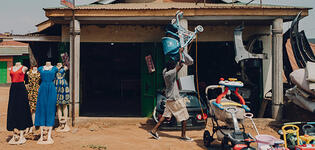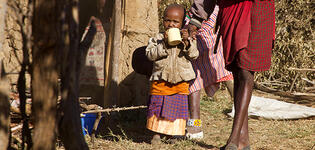Blog
An African in Africa
New perspectives on travelling for research
Working for an international organisation presents a host of challenges, given the vast nature of tasks that one must surmount in a fast paced and changing environment. It might be a roller coaster, but also satisfying by providing many worthwhile experiences. The latter was my sensation during my recent trip to Zambia.
This experience gained through my work with UNU-WIDER demonstrated that although I am African, there continues to be a lot to learn for me within the continent. The goal of this blog is to share the new insights I gained as an African travelling to Africa for research.
The work: gathering data and supporting policy changes
I travelled to Lusaka to work on gathering administrative tax data to facilitate research work on tax gaps and administrative tax interventions. This was made possible through our collaboration with the Zambian Revenue Authority (ZRA) and the Zambian Institute for Policy and Research (ZIPAR).
In collaboration with the skillful ZRA research department, I compiled and cleaned administrative tax data. The data included information on several taxes, for example corporate income tax and value added tax returns. These panel datasets will then be used in our two joint research projects studying the VAT gap and the impact of a new tax enforcement method on VAT compliance. My data gathering assignment was successful and exciting with great help from the ZRA, and a workstation offered by ZIPAR.
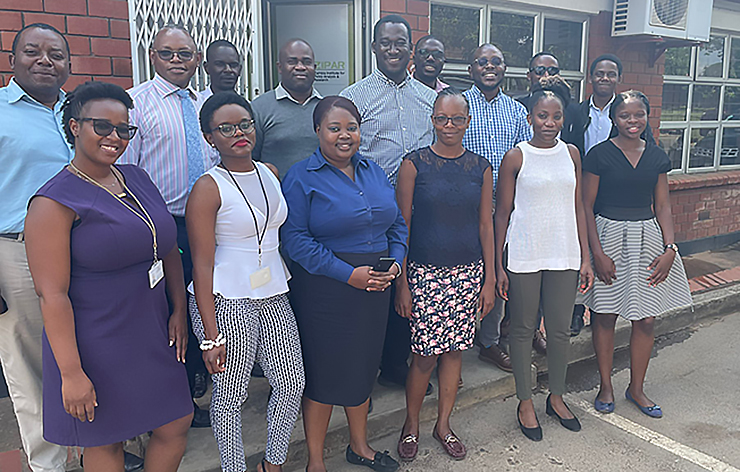
My secondary task was related to the SOUTHMOD project which aims to inform policy and academic debates through microsimulation modelling. Under this task I helped organize two dissemination events based on studies using the MicroZAMOD, tax-benefit microsimulation model for Zambia: Cash Plus and COVID-19 reports.
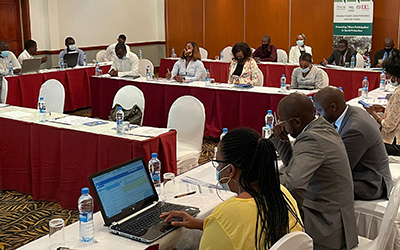 Although I have contributed to developing the Ghana microsimulation model (GHAMOD), this was the first time I worked closely with developers of other models. The main difference I observed between Ghanaian developers and our Zambian counterparts is that the use of MicroZAMOD is more policy oriented as the model sits with a policy think tank (ZIPAR) while the use of GHAMOD is more academic oriented as it sits with the University of Ghana. By observing the collaboration between ZIPAR, the media and the related state ministries, I gained insights into how the research under SOUTHMOD is driving the policy debate in Zambia.
Although I have contributed to developing the Ghana microsimulation model (GHAMOD), this was the first time I worked closely with developers of other models. The main difference I observed between Ghanaian developers and our Zambian counterparts is that the use of MicroZAMOD is more policy oriented as the model sits with a policy think tank (ZIPAR) while the use of GHAMOD is more academic oriented as it sits with the University of Ghana. By observing the collaboration between ZIPAR, the media and the related state ministries, I gained insights into how the research under SOUTHMOD is driving the policy debate in Zambia.
Infrastructural differences
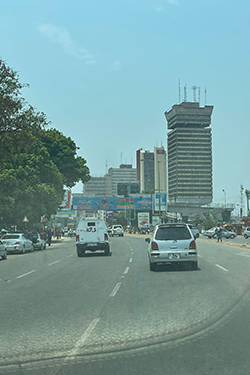 Right from the beginning, I realised that things were quite different in Zambia compared to Ghana. Getting from the airport to the place of stay was impossible with the methods I was used to (Uber, Yango, Taxify etc.), as they are non-existent in the country. I later understood this is because the country wants to promote a local taxi service, Ulendo.
Right from the beginning, I realised that things were quite different in Zambia compared to Ghana. Getting from the airport to the place of stay was impossible with the methods I was used to (Uber, Yango, Taxify etc.), as they are non-existent in the country. I later understood this is because the country wants to promote a local taxi service, Ulendo.
With the country just coming out of a peaceful election cycle that saw a new government on the seat of power, I decided to engage my taxi chauffeur on his thoughts about Zambian politics. From his responses, I gathered that the vote pattern of the general populace fully reflected current societal needs with the belief that the new government had enough political capital to effect change in the country. In all, I felt efficient revenue mobilisation and restructuring as Ghana is undergoing would be a great asset for the new Zambian government if it wants to improve the state of infrastructure and household welfare.
Another general impression I had about Zambia was that the economy is not ‘cash lite’. In Zambia, aside the bigger malls and the few formal establishments one must make sure to carry cash to facilitate all payments. It was quite a new experience carrying a wallet full of cash hoping I would not be mugged for its contents, for which I was assured would never happen in a country with such low crime rates.
The culture: enjoying local specialities
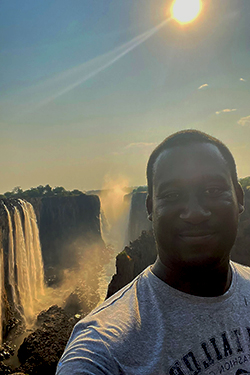 I also had the opportunity to attend a cultural experience uniquely Zambian, the so called ‘Matabeto’. Matabeto is a sort of traditional ceremony to show appreciation to a married man by his wife´s family for honouring their daughter with marriage as well as providing offspring to continue the family line.
I also had the opportunity to attend a cultural experience uniquely Zambian, the so called ‘Matabeto’. Matabeto is a sort of traditional ceremony to show appreciation to a married man by his wife´s family for honouring their daughter with marriage as well as providing offspring to continue the family line.
For indicating their appreciation, the family cooks all kinds of indigenous dishes for the man to eat with his family and friends. That was the first time in my life I have seen so much food meant for a single person which I cannot list here due to space constraints.
During the ceremony I had the chance to sample various Zambian dishes, one of them being pan-fried caterpillars, which I learned is a local delicacy among most tribes in the country. I decided not to taste it, but seeing others savouring it, it must have tasted awesome. In general, I noted that the food was different from Ghanian dishes, that tend to be spicier.
I am looking forward to a great collaboration with our Zambian sisters and brothers on decreasing poverty and inequality in the country through improvements in tax compliance and suggestions for optimal design of tax-benefit policies.
In the future, I am hoping to visit again. Maybe not only as a researcher but as an African tourist in Africa.
The views expressed in this piece are those of the authors, and do not necessarily reflect the views of the Institute or the United Nations University, nor the programme/project donors.
 Join the network
Join the network




